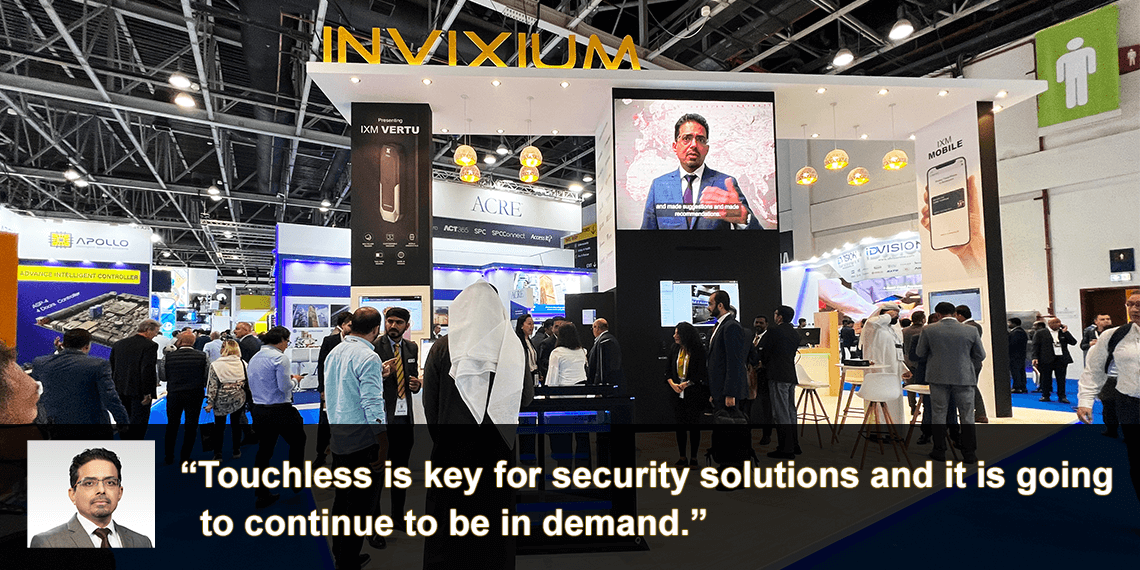Interview with the CEO: Touchless is Key for Security Solutions
Shiraz Kapadia, CEO and President of Invixium speaks with Chris Fernando, editor at Security Review Magazine about his company’s participation at Intersec Dubai 2023
Please tell us about your participation at Intersec Dubai 2023.
Intersec has always been very special for us. This is because we launched Invixium in 2013 at Intersec and 2023 marks our 10th participation at the event. We started with an 18-square-meter booth, and this year we exhibited in a booth with 77 square meters of space. The region has been very good to us and today we have a good presence in the Middle East.
So at Intersec this year, you launched a new product called Vertu. Can you tell us about it and how is it unique?
So we are by DNA, a biometric company. Biometric means facial recognition, fingerprint, and so on. But we are humble to accept the fact that not all doors for access control are going to require biometric solutions because it’s relatively expensive. But because of the supply chain challenges that the market faced over the past 18 to 24 months, that has affected the card reader supply.
Our customers were not getting it and so they came to us. They said we understand you’re a biometric company, but we want your products for 25% of the doors, but for the remaining 75%, we don’t have a solution. So they requested us to launch a well-designed access control reader that can read Mifare, DESFire, EV1, EV2, NFC, BLE, and so on. And we didn’t want to say “No” to customers and the market. So even though we are a biometric company, we have launched such a product to service our customers.
Lots have changed in the hybrid working environment. How have security policies changed? What sort of challenges exist in the market today?
We sell to markets that have a great demand for access control and workforce management solutions. So, these solutions are not required in the white-collar industry. It’s required more in the blue-collar industry where there are large workforces such as oil refineries, construction sites, manufacturing plants, and so on, who work on-field.
So, in that regard, nothing has changed for us. In terms of the office environment, I think a hybrid work environment is here to stay and the security industry has adapted itself to the changes. So security products have become more intelligent. They now have more communication through Wi-Fi and cellular. And I think the industry has adapted quite well.
Solutions such as touchless and face recognition have received 20 years’ worth of adoption in a span of just one year. Health screening and temperature screening were never a requirement. Today, we do not see such screenings in most places. The biggest challenge is inflation. Costs have gone up drastically and customers don’t like to pay more. So we are delivering more value for the same price.
What sort of trends do you foresee in the industry that you’re operating in, especially for the Middle East market?
Touchless is key for security solutions and it is going to continue to be in demand. Multi-biometrics is another trend – so two biometrics in the same product with more integration.
So people don’t like a lot of clutter at their front door. They want an integrated solution and they want a solution from one supplier so that they don’t have to deal with multiple companies to solve one problem. I think those are the practical trends for this year.




